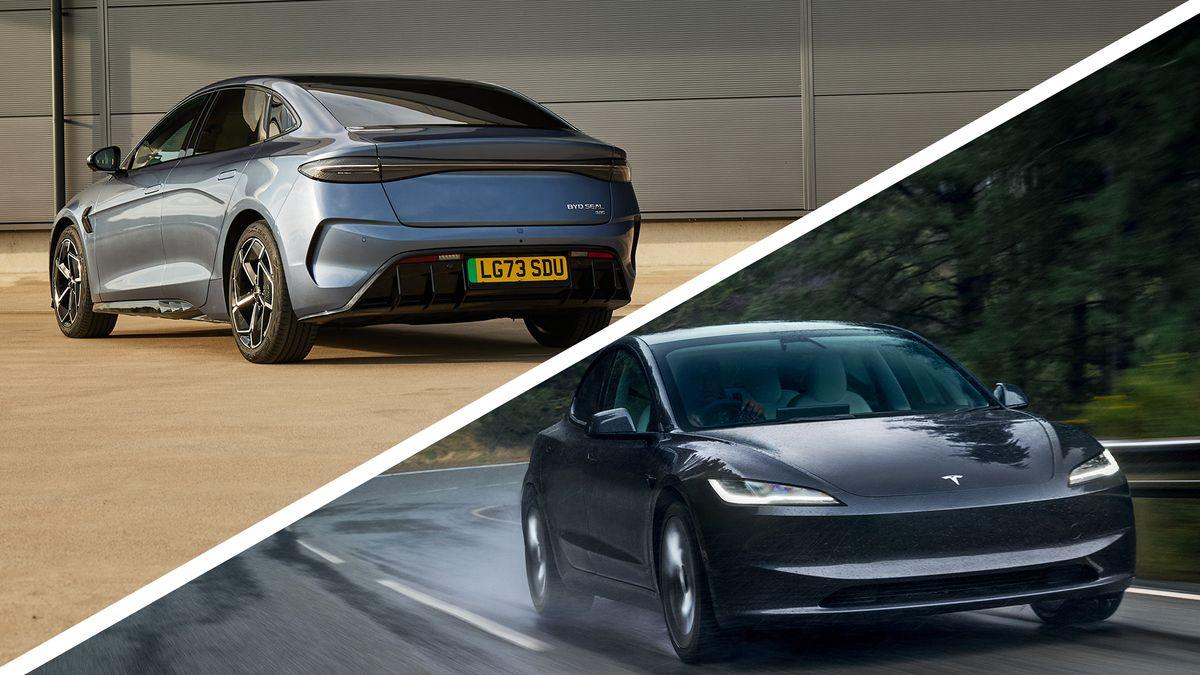- BYD built more electric vehicles than Tesla for the first time in 2024
- Cheaper Chinese vehicles gain ground in emerging markets
- Sales of electric vehicles will surpass those of gasoline cars in China this year
Tesla has been the undisputed king of electric vehicles for over a decade now, producing more cars and significantly outpacing its competitors during that time.
But the threat of Chinese rivals looms on the horizon, with Build Your Dreams – or BYD, to most – quickly catching up to Musk’s successes.
According to the Washington Post, BYD built more electric cars than Tesla last year, the first time it has reached such a milestone.
Although margins are relatively low, with BYD producing 1.78 million electric vehicles compared to Tesla’s 1.77 million, it shows that more affordable alternatives from China are quickly gaining traction in many emerging markets around the world. .
Sales of more affordable electric vehicles are expected to surpass those of gasoline and diesel cars in China for the first time this year, according to the Financial Times, with demand for low-cost electric vehicles growing.
BYD cars have long cost almost half the price of Tesla’s most capable models, with models like its smaller Seagull undercutting Tesla’s smaller Model 3 by almost $30,000 (or around £25,000/ AU$50,000).
A better comparison would be the newer BYD Sealion, which takes the form of the brand’s large SUV offering and costs around $26,000 (around £22,000 / AU$42,000) in China, almost half the price of a similar Model Y.
As the Biden administration introduces steep tariffs on Chinese vehicle imports and seeks to completely ban any vehicle with connected Chinese technology, the likelihood of BYD gaining a foothold in the United States appears slim.
Instead, the Chinese automaker sought to gain ground in the successful markets of Southeast Asia, the Middle East and South America.
Gernot Wagner, a climate economist at Columbia Business School, told the Washington Post that there is “not a single attractive, affordable project.” [all-electric car] made in the United States that would stand a chance against a Chinese product in a developing market,” sparking concerns that North America could fall far behind its Chinese counterparts and lose its reputation as a global automaker in the years to come.
Analysis: the gap between East and West is narrowing
There was a time when vehicles from China were seen as cheap, basic, poorly built alternatives to what the world’s “legacy automakers” had been producing for decades. But times are changing.
The quality of BYD’s latest products has been applauded by both professionals and customers, who have praised the generous equipment levels offered at affordable prices, in-car technology that works and a battery life that eclipses that of many more. expensive rivals.
On the other hand, Tesla has been criticized for the often questionable build quality of its cars, with the most recent Cybertruck being among those that have suffered numerous recalls and issues that have sent customers venting on forums .
What’s worse is that Tesla’s battery technology doesn’t seem to be evolving at the same pace as MG, BYD, and several other top-performing Chinese companies.
The most recent “Juniper” Model Y update, for example, added about 10 miles of extra range, while MG announced it would launch a vehicle with solid-state battery technology this year which would offer a range in excess of 600 miles.
But perhaps more worrying is the fact that the North American auto industry does not appear to be responding to the threat from China, despite the government doing everything it can to level the playing field .
Instead, companies like Ford and GM have resorted to hybrids or reverted to producing gasoline vehicles, rather than keeping pace with global electric vehicle innovation, meaning these brands may soon have little left to offer a world that has left fossil energy behind. fuels.




